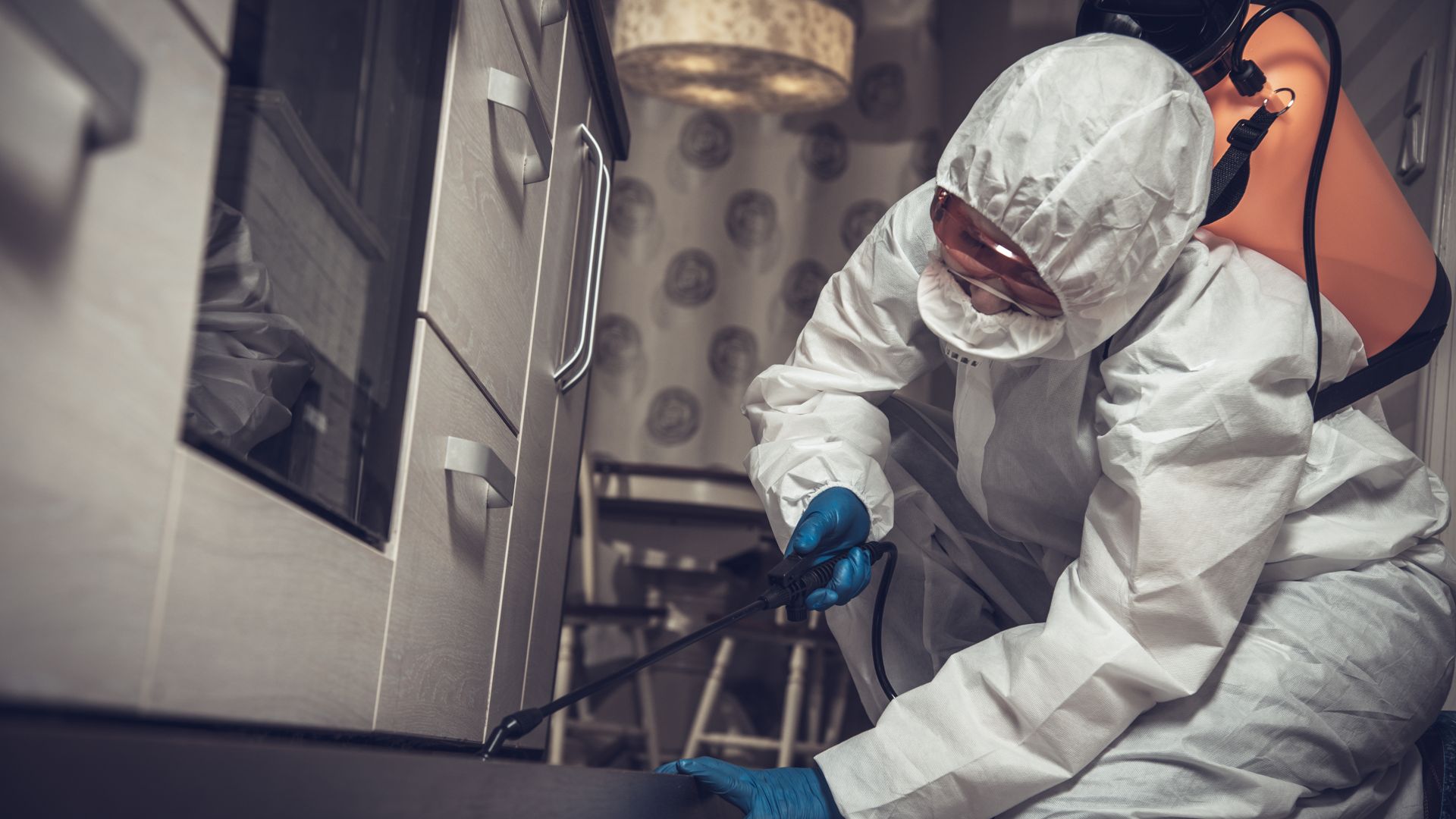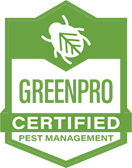
What Are These Bugs In Sacramento Eating My Plants?
As you’re strolling through your garden, admiring your plants, you may notice small, pear-shaped insects attached to their leaves and stems. What are these bugs? Are they hurting your plants? How can you stop them? Our Sacramento pest control company has the answers to these questions and more. Continue reading to learn all about these mysterious garden pests.
They May Be Aphids
.2404181014550.jpg)
The bugs you see on your plants are likely aphids; it is common to find aphids in Sacramento gardens. Aphids feed on the sap that plants produce and usually gather in groups. Aphids have soft, pear-shaped bodies and are quite small, between 1/16” and 1/8” long. There are many different species of aphids, and they can come in a variety of colors. Aphids may be black, gray, green, red, brown, yellow, or pink. Some species also have a wooly or waxy coating on their bodies. All aphids have two cornicles, or tailpipes, extending from their abdomens.
If your garden has an aphid infestation, you will likely find clusters of aphids on several of your plants. Aphids congregate underneath leaves, on developing stems, or on unopened flower buds. Other signs of aphids include:
- Aphid honeydew - this is a sugary waste product that aphids produce, which can leave a shiny, sticky residue on your plants and items underneath them.
- Sooty mold - is a fungus that grows on honeydew and looks like black splotches on the leaves of plants.
- Aphid exoskeletons - white shed skins left on or around plants.
- Plant damage - yellowed leaves, twisted/curled leaves, poor growth, dead shoots, etc.
Any of these occurrences may indicate an aphid problem in your garden. If you’re still not sure whether the bugs on your plants are aphids, an aphid control professional can help you identify them.


Ensuring your home and business are pest-free, explore our different service areas to see if we're local to you! Give us a call to get started!
Why Do Aphids Eat Plants?
Aphids don’t exactly eat plants; they feed on the sap inside plants. Aphids attach to plants and extract nutrient-rich fluids by using their specialized mouthparts. Aphids gravitate to areas of new growth on a plant, such as young leaves, roots, and stems. After feeding, aphids secrete a waste product called honeydew. This sugary substance can also attract ants and other insects to your garden.
There are many different types of aphids in Sacramento, and some are particularly attracted to certain types of plants. For example, cabbage aphids feed on cabbage plants, while potato aphids prefer potatoes, tomatoes, and peppers. Some aphids are less picky, such as green peach aphids that feed on various plants. Whatever species you are dealing with, aphid control can help keep these pesky bugs out of your garden.
When aphids feed on plants, they can damage them by removing nutrients needed to survive and stay healthy. The damage may manifest as twisted, curling, yellowed leaves, dead shoots, or stunted plant growth. Aphids can also spread viruses among plants. In the next section, we’ll cover some ways that you can avoid aphid damage in your garden.
-
Same-Day & Emergency Services AvailableWhen possible, we can provide prompt assistance to help with your pest solution needs.
-
Local, Family Owned & OperatedRooted in our local communities, we know the best solutions for the pests in our unique areas.
-
We Offer Organic Treatment OptionsEmbrace a eco-friendly approach with our range of sustainable solutions for your needs.
-
45+ Years of Industry ExperienceTrust in our seasoned knowledge and proven track record spanning over four decades.
What Are Natural Ways I Can Get Rid Of Aphids?
Aphids appear in residential gardens. In small numbers, they do little harm, but larger populations can cause noticeable damage. If aphids are covering your plants, you can help protect your garden using some simple, natural methods. Here are some ways you can prevent and get rid of aphids:
- Remove weeds that may be attracting aphids.
- Use a high-pressure hose to knock aphids off of plants with water.
- Support natural predators of aphids such as lacewings, ladybugs, and parasitic wasps.
- Inspect your plants regularly for signs of aphids. Regular inspections can prevent their populations from growing out of control.
These simple tips can help you avoid aphid damage to your plants. For persistent aphid problems, professional treatments can provide a longer-lasting solution. Neighborly Pest Management offers effective aphid control in the Sacramento area. Contact us today to learn how we can safely eliminate the aphids from your garden.
Will Treatment Harm My Plants?
A common concern regarding aphid treatment is whether the treatment will harm the plants in the process. When you work with Neighborly Pest Management, the answer is “no.” Our products get rid of aphids without compromising the health of your trees and plants. We also offer organic treatment options for the most eco-friendly approach to aphid control.
Neighborly Pest Management has served Sacramento with quality pest control solutions since 1978. If your yard has an aphid infestation, don’t hesitate to give us a call. We will remove the aphids from your garden, so your plants can grow to their full potential. Keep your garden safe from aphids—contact Neighborly Pest Management for your free inspection today.

Hear From Our Happy Customers
At Neighborly Pest Management, your satisfaction is our priority! See for yourself what our customers have to say about working with us.
-
“We can't share enough positive feedback about Doug and Neighborly Pest. Doug has always gone above and beyond to make sure our house stays bug-free!! He's considerate and always follows up to see how things are going after his visit.”- Sabrina C.
-
“I've never had a bug problem since I switched to Neighborly. Danny is an awesome technician! He has a great personality and explains things thoroughly and gives me clear and detailed answers to any questions I might have.”- Joe B.
-
“Super friendly and professional. I appreciate the thoughtfulness and professionalism Adam displayed on our initial visit and feel confident he is taking excellent care of my home.”- Erin D.
-
“We’ve used Neighborly for a couple of years and have had outstanding service consistently throughout. Doug is mindful of our pets and kid's safety as well, making sure that our home is a safe environment for everyone except the pests!”- Greg
-
“Adam was fantastic! Super friendly and professional. I felt at ease and knew I could ask any question, no matter how dumb it sounded, and he was able to answer and provide more information based on my concerns.”- Erin D.
-
“We have been using Neighborly Pest for many years. While we have had many competitors come to our door, we have no interest in changing. Doug has been our technician during our entire service, and he is absolutely the best, always friendly!”- Brittany A.





